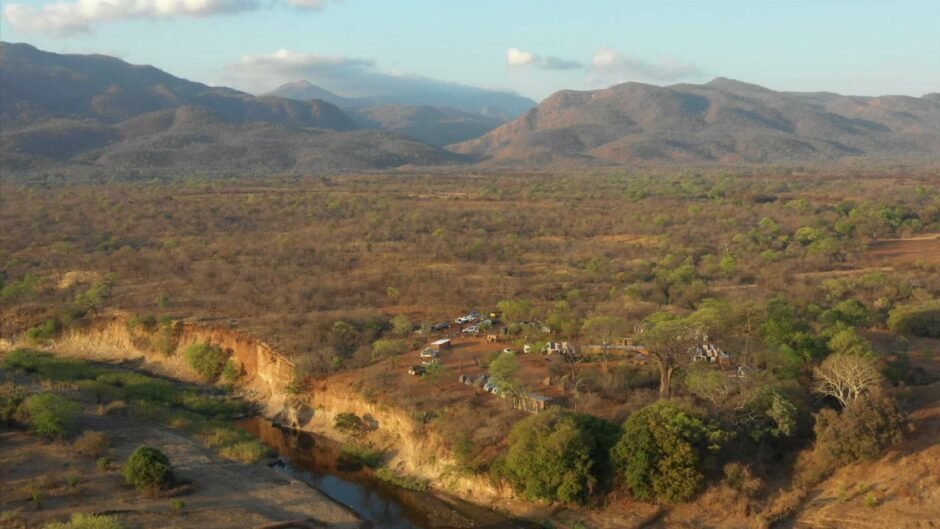
Invictus Energy expects to start drilling its major Zimbabwean prospect by July, bringing the long-awaited dream of founder and managing director Scott Macmillan to the test.
Mobil, in the late 1980s, got the ball rolling with a seismic shoot. The US company did not go ahead to test the licence in the Cabora Bassa Basin, leaving its underground information neglected. Macmillan plans to tackle this oversight – potentially transforming Zimbabwe and Invictus.
“The rig is mobilising in May and should arrive in Zimabwe around mid June, it depends on transit from Songo Songo in Tanzania,” Macmillan explained. Following some initial maintenance, drilling should begin in July. The licence is in Zimbabwe’s north, near Mozambique.
The first target is a prospect the executive has long talked about. The Muzarabani structure – now known as Mukuyu, after the fig tree – may hold more than 8 trillion cubic feet (227 billion cubic metres) of gas. In addition, it may have another 290 million barrels of condensate.
Macmillan noted a second well would target a newly discovered play. “In addition to Mukuyu, there’s a basin margin play. It’s a typical East African rift play, it’s entirely separate from Mukuyu. We’re mobilising a rig and there’s only a small incremental cost to drilling this as well.”
Invictus acquired more than 800 km of 2D seismic in late 2021, which raised the possibility of this new play. Macmillan noted that it may be more likely to be liquids prone.
Growing support
Drilling will shed light on what the area may hold. After the depression that gripped the sector during the pandemic, a newfound optimism is returning.
The company’s investors are one of its strengths, although institutional backers have also shown support for Invictus’ plans. In the midst of 2020, it was “really awful”, Macmillan acknowledged, with investors across the energy sector concerned – particularly in frontier exploration.
“It’s right at the extreme end of the interest scale,” he said. Things have become more positive this year, amid broader concerns around energy security. “We’ve seen retail interest pick up and we’ve managed to bring in some strong institutions.”
Investors have come to realise that oil and gas will be around for the long term, he said. Furthermore, there has been “chronic underinvestment” since the 2014-15 downturn.
Invictus offers “big basin-scale potential”, he said, similar to Namibia-focused Reconnaissance Energy Africa, another exploration junior with determined investors.
For now, Invictus is happy with its listing in Australia and on the OTC. “Australia has been great from a primary listing point, it’s probably the best exchange in the world.” London, on the other hand, has historically been seen as a natural hub for African commodity companies, has become less receptive to risk, Macmillan said.
“We’ll sit tight for the moment. It will make sense at some time to come to London,” he said.
Partner plans
One option for reducing risk is through a farm out.
Invictus signed a farm out option with Cluff Energy Africa in December 2021, extending this in March. Cluff was in the process of putting together an African exploration portfolio and had experience in Zimbabwe.
“It demonstrated an endorsement on the technical front but also on the aboveground front. Algy [Cluff] has shown that you can invest in Zimbabwe successfully, given his experience with mining.”
Macmillan’s family has been in Zimbabwe since the 1890s, giving him a particular insight into the country’s challenges.
Other companies had been interested before the pandemic and now interest is returning. “There’s some real interest, some other parties have come back to us, it’s not just Cluff. We’ll progress it and see where we sit. We don’t need a farm out to make it work,” Macmillan said. “We’re in a position where we can sole fund it.”
Invictus has an 80% stake in its Zimbabwean permit, SG 4571. A local partner, One-Gas-Resources, holds the remaining 20%. “There’s plenty of space to bring in a partner,” Macmillan said.
Logistics
The pandemic was a struggle but it also gave Invictus an opportunity to plan ahead and secure long lead items are competitive prices. The company knew logistics were going to be an “endeavour”, Macmillan said, with rig providers and service companies not having experience of Zimbabwe.
“We’ve done a huge amount of work on this. We’ve been doing it ourselves, where other companies would have found it tricky to navigate. It also helped from a cost perspective,” he said.
Long lead items are in the process of moving to ports in Durban or Beira, he said, the company has set up a yard at Harare, well pad construction is under way.
Once the two-well programme has been concluded, Invictus will have a better idea of what is underground in Zimbabwe.
Next steps
Drilling for gas may seem to be a challenge given explorers’ historic aversion to onshore discoveries in Africa. In Zimbabwe, though, it is different, Macmillan explained.
The country has existing pipeline easements, which would allow exports to regional markets. It also has strong connections to the Southern African Power Pool (SAPP). Local industries are currently importing supplies from South Africa, a local alternative would provide a quick development.
This connection to local demand should mean that there is political support for a gas project. “They see this can solve problems from an energy side, it would solve them in one hit,” Macmillan said. “The lack of energy is hampering the development of the country. This is a silver bullet.”
The managing director went on to sing the praises of Invictus’ local partner. “One-Gas has done a huge amount behind the scenes, to handhold government and local communities. We have their full support and that’s going to unlock some of those market opportunities.”
There are many potential pitfalls for exploration anywhere in the world, let alone exploration in a frontier market such as Zimbabwe. That said, the signs seem to point in Invictus’ favour – and its drill progress will be closely watched.

 © Supplied by Invictus Energy
© Supplied by Invictus Energy